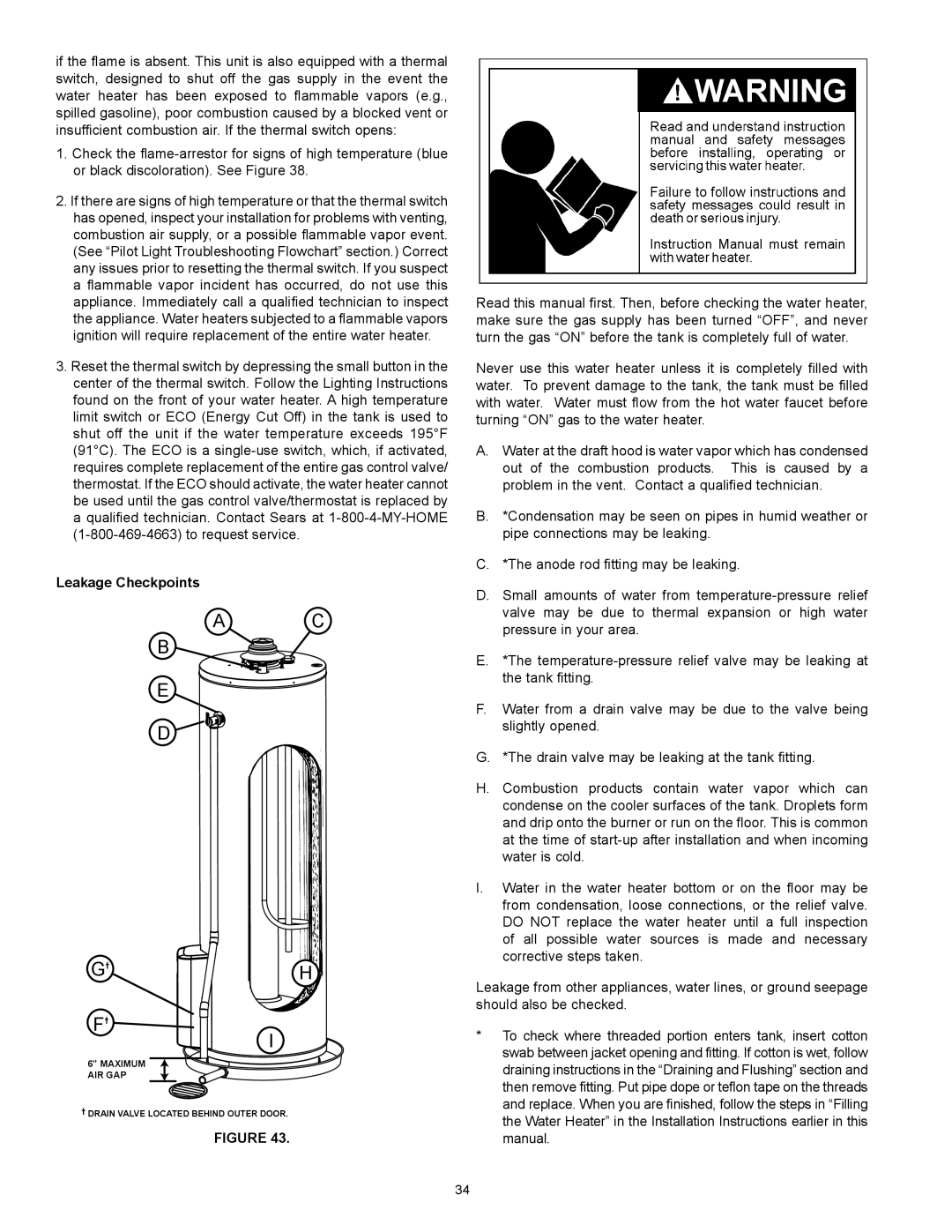
if the flame is absent. This unit is also equipped with a thermal switch, designed to shut off the gas supply in the event the water heater has been exposed to flammable vapors (e.g., spilled gasoline), poor combustion caused by a blocked vent or insufficient combustion air. If the thermal switch opens:
1.Check the
2.If there are signs of high temperature or that the thermal switch has opened, inspect your installation for problems with venting, combustion air supply, or a possible flammable vapor event. (See “Pilot Light Troubleshooting Flowchart” section.) Correct any issues prior to resetting the thermal switch. If you suspect a flammable vapor incident has occurred, do not use this appliance. Immediately call a qualified technician to inspect the appliance. Water heaters subjected to a flammable vapors ignition will require replacement of the entire water heater.
3.Reset the thermal switch by depressing the small button in the center of the thermal switch. Follow the Lighting Instructions found on the front of your water heater. A high temperature limit switch or ECO (Energy Cut Off) in the tank is used to shut off the unit if the water temperature exceeds 195°F (91°C). The ECO is a
Leakage Checkpoints
A C
B
E
D ![]()
![]()
![]()
![]()
G† | H |
F† | I |
| |
6” MAXIMUM |
|
AIR GAP |
|
†DRAIN VALVE LOCATED BEHIND OUTER DOOR.
FIGURE 43.
Read this manual first. Then, before checking the water heater, make sure the gas supply has been turned “OFF”, and never turn the gas “ON” before the tank is completely full of water.
Never use this water heater unless it is completely filled with water. To prevent damage to the tank, the tank must be filled with water. Water must flow from the hot water faucet before turning “ON” gas to the water heater.
A.Water at the draft hood is water vapor which has condensed out of the combustion products. This is caused by a problem in the vent. Contact a qualified technician.
B.*Condensation may be seen on pipes in humid weather or pipe connections may be leaking.
C.*The anode rod fitting may be leaking.
D.Small amounts of water from
E.*The
F.Water from a drain valve may be due to the valve being slightly opened.
G.*The drain valve may be leaking at the tank fitting.
H.Combustion products contain water vapor which can condense on the cooler surfaces of the tank. Droplets form and drip onto the burner or run on the floor. This is common at the time of
I.Water in the water heater bottom or on the floor may be from condensation, loose connections, or the relief valve. DO NOT replace the water heater until a full inspection of all possible water sources is made and necessary corrective steps taken.
Leakage from other appliances, water lines, or ground seepage should also be checked.
*To check where threaded portion enters tank, insert cotton swab between jacket opening and fitting. If cotton is wet, follow draining instructions in the “Draining and Flushing” section and then remove fitting. Put pipe dope or teflon tape on the threads and replace. When you are finished, follow the steps in “Filling the Water Heater” in the Installation Instructions earlier in this manual.
34
